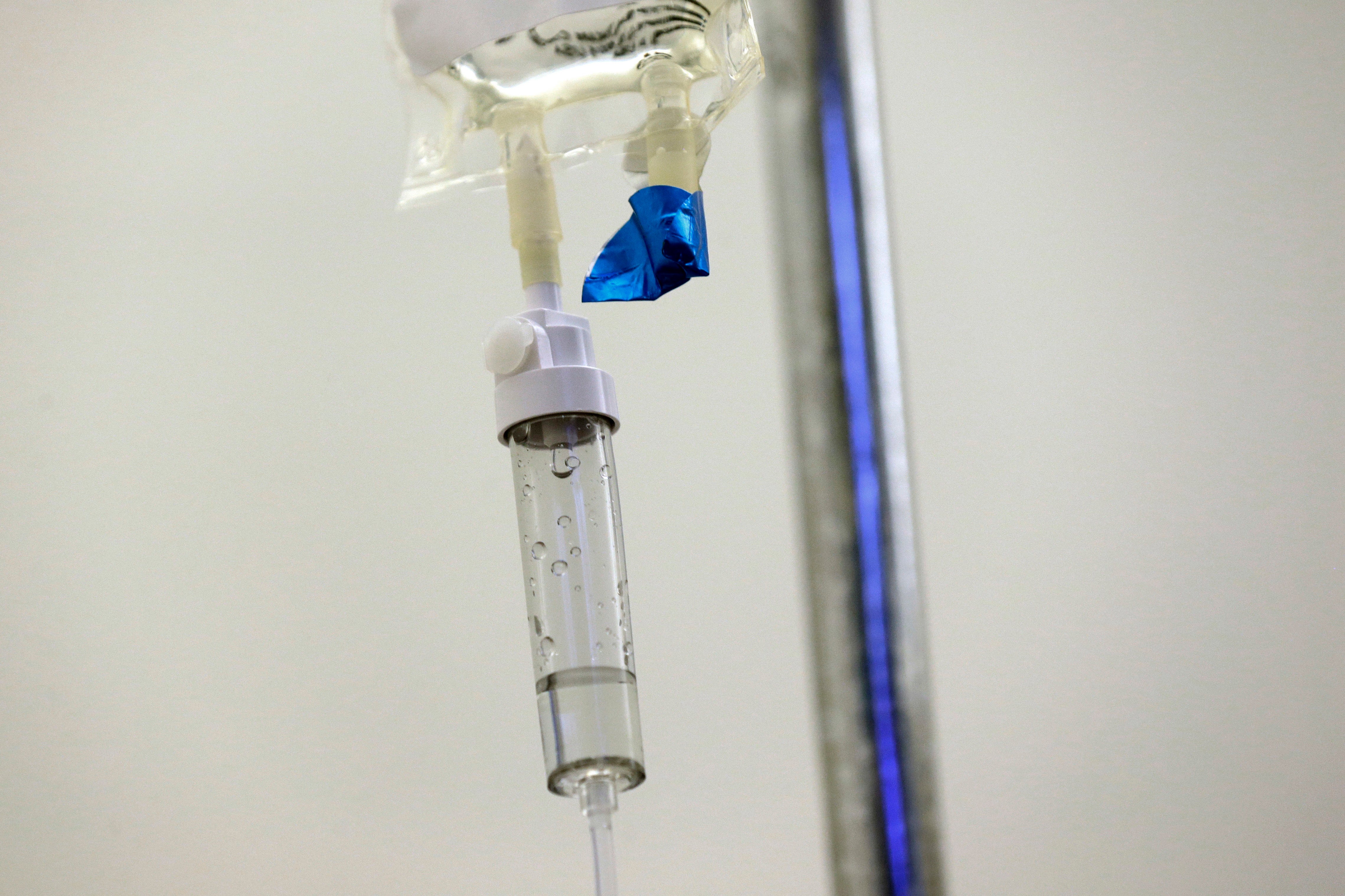Cancer centers say US chemotherapy shortage is leading to treatment complications
U.S. cancer centers say a growing shortage of common treatments is forcing doctors to switch medications and delaying some care

Your support helps us to tell the story
From reproductive rights to climate change to Big Tech, The Independent is on the ground when the story is developing. Whether it's investigating the financials of Elon Musk's pro-Trump PAC or producing our latest documentary, 'The A Word', which shines a light on the American women fighting for reproductive rights, we know how important it is to parse out the facts from the messaging.
At such a critical moment in US history, we need reporters on the ground. Your donation allows us to keep sending journalists to speak to both sides of the story.
The Independent is trusted by Americans across the entire political spectrum. And unlike many other quality news outlets, we choose not to lock Americans out of our reporting and analysis with paywalls. We believe quality journalism should be available to everyone, paid for by those who can afford it.
Your support makes all the difference.A growing shortage of common cancer treatments is forcing doctors to switch medications and delaying some care, prominent U.S. cancer centers say.
The National Comprehensive Cancer Network said Wednesday that nearly all the centers it surveyed late last month were dealing with shortages of carboplatin and cisplatin, a pair of drugs used to treat a range of cancers. Some are no longer able to treat patients receiving carboplatin at the intended dose or schedule.
Dr. Kari Wisinski has had to turn to other treatments for some patients or switch the order in which people receive their drug combinations. She said she’s done that “hoping that within three months there will be a better carboplatin supply.”
“It’s really difficult as a physician to have these conversations with a family or a patient about not having a medication you’d like to prescribe to them,” she said.
Wisinski is a breast cancer specialist with the UW Health Carbone Cancer Center in Madison, Wisconsin, a member of the network. She said doctors, nurses and pharmacists at her center have done a good job managing the drug supply, but doing so has taken them away from other elements of care.
Of the 27 cancer centers that responded to the network’s survey, 25 reported a shortage of carboplatin. Among the cancer centers with shortages of carboplatin, more than a third said they were unable to treat all patients according to the intended dose and schedule.
Nineteen hospitals also reported cisplatin shortages, but all said they were able to maintain the treatments for existing patients.
The problem started developing earlier this year, said Mike Ganio, who studies drug shortages at the American Society of Health-System Pharmacists.
“I think it went from being a shortage to being a really bad shortage really quickly,” he said. “There’s not a whole lot of room for it to get worse.”
Ganio’s society reported the cisplatin shortage in January and then carboplatin in late March, months after a factory in India that makes both drugs paused production following an inspection that raised quality concerns.
Manufacturing problems, unexpected demand spikes and tight ingredient supplies have all contributed to a growing number of prescription drug shortages in the United States. Many patients with attention deficit/hyperactivity disorder have had a hard time filling prescriptions for Adderall this year, and drugstores ran out of children’s medicines during last winter’s cold-and-flu season.
There were 301 active national drug shortages through this year’s first quarter, according to the University of Utah Drug Information Service.
The U.S. Food and Drug Administration has taken some steps to try to ease the chemotherapy shortage. The agency is allowing the temporary importation of some foreign-approved versions of cisplatin from factories registered with the FDA.
That should help, but the big factor is getting the factory in India back up to full production, Ganio said.
He also noted that drug supply shortages are a decades-old problem.
“We really need to get at the root causes of these shortages or they're going to continue happening,” he said.
___
The Associated Press Health and Science Department receives support from the Howard Hughes Medical Institute’s Science and Educational Media Group. The AP is solely responsible for all content.